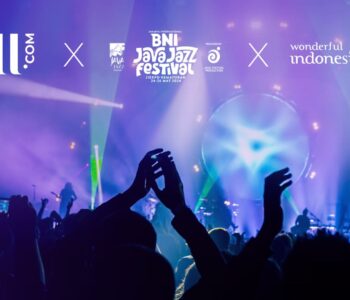The concept of sustainable development is receiving growing recognition, but it is a new idea for many business executives. For many, the concept remains abstract and theoretical, and associated with increased expense, not increased profit.
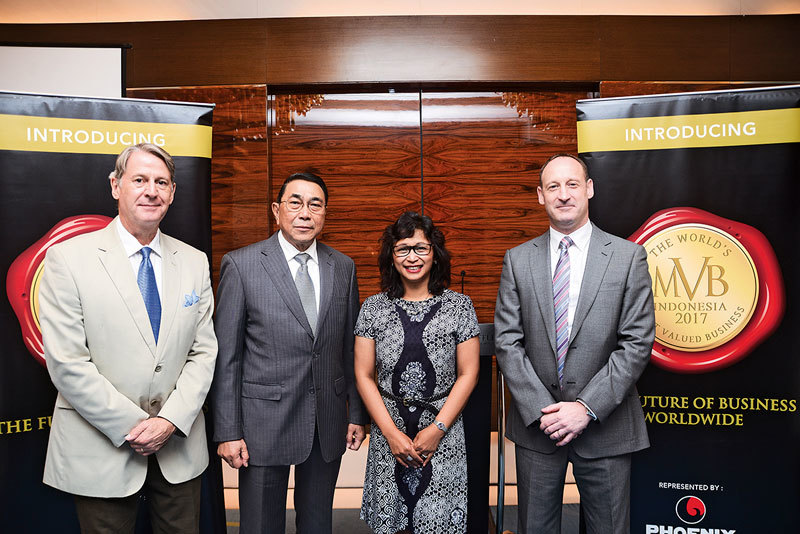
Protecting an organization’s capital base is a well-accepted business principle, yet organizations do not generally recognize the logical extension of this notion to the world’s natural and human resources.
For business enterprises, sustainable development means adopting business strategies and activities that meet the needs of the enterprise and its stakeholders today while protecting, sustaining and enhancing human and natural resources that will be needed in the future.
This definition has been brought up and fine-tuned by The World’s Most Valued Business (MVB) to help businesses adopt the concept of sustainable development to their own organizations.
By setting seven critical value areas to begin to identify levels of corporate achievement in these important aspects, such as sustainability, best possible business practices, ethical employment, safety and security, customer service and respect, environmental friendliness and corporate value, companies can look critically at their own performance and ensure it is all heading in the right direction. And if it’s not, take measures to change.
MVB helps to identify and highlight all the positive activities undertaken by a company and give added value by creating platforms to share their stories to consumers and it also develops groundbreaking CSR and sustainable activities that MVB members can actually participate in.
Over the following pages, MVB shares three stories from our current members Coca-Cola Amatil Indonesia, Blue Bird Group and PT. Hero Supermarket Tbk. about their campaigns and activities related to sustainability and best business practices, as an example for others to follow.
We hope these will inspire you to do your own activities – and to join MVB to let the world know about them!
Coca-Cola Amatil Indonesia
Ways to a Sustainable Future
For nearly 25 years, Coca-Cola Amatil Indonesia (CCAI), one of the top five Coca-Cola bottlers in the world, has been the power behind Indonesia’s favourite and leading beverage brands. Committed to growing together with Indonesia since 1992, CCAI has been recognized as a strong enforcer of CSR programmes that benefit not only its employees but also the surrounding communities, partners, consumers and the environment. With access to more than 250 million consumers in Indonesia, CCAI has a vision to create millions of moments of happiness and possibilities everyday.
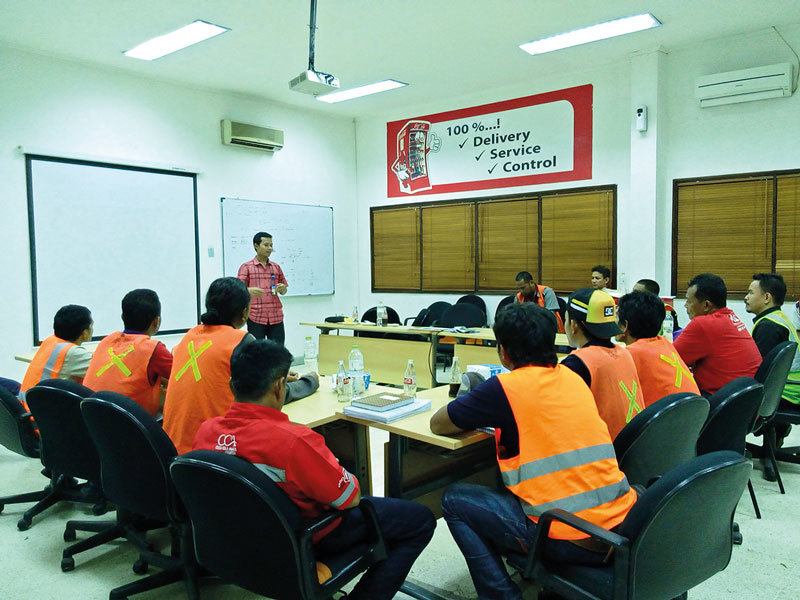
Throughout an ever-expanding agenda of CSR programmes, CCAI is involved in a lot of community initiatives that uphold four basic principles upheld by the Australian-based company: Environment, Community, Marketplace and Workplace. These pillars are based on strong core values of sustainability, evident through company programmes, day-to-day operations, decision-making and generally how it does business here in Indonesia.
On the environmental side, CCAI runs efforts to lower carbon footprint, conducts zero-waste business and seeks to be the lead change for a more sustainable future. CCAI divides its environment focus into three aspects: Energy Efficiency, Waste Management and Water Stewardship. This threefold approach has manifested into more than ten initiatives, for instance: Energy Efficiency Cooler, Bali Beach Clean Up, Coca-Cola Forest and many more.
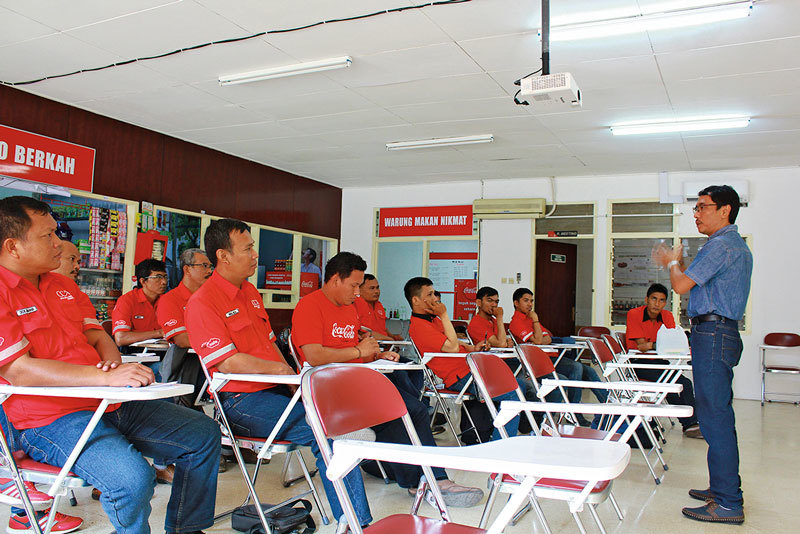
Over the years, CCAI had contributed to the Indonesian economy by stimulating job creations, sourcing goods from local suppliers and creating entrepreneurship programmes for residents around its nine manufacturing plants across the country. In order to nurture its relationship with these communities, CCAI has designed a special project called “Zone-1 Program”, which consists of numerous activities that support their daily lives, such as Tree Planting, Clean Up Day, Fogging, Blood Donation, Education Scholarship and Natural Disaster Training.
Without a doubt, at the foundation of every successful business is the commitment of its employees, and CCAI believes that when employees are engaged in the business, it drives productivity, innovation and bottom-line performance. By staying true to its core values of sustainaibility amid accelerating changes in the marketplace, the company hopes to achieve the best results for its stakeholders and attain long-term success.
To learn more about Coca-Cola Amatil Indonesia, visit www.coca-colaamatil.co.id
HERO Group
People, Planet and Profit
HERO Group, the pioneer in Indonesian modern retail, realized that business success is not always about making profit, but also the benefits provided to the community. The company sees sustainability as a core responsibility to build a welfare society. Eventually, this has led the group to establish “HERO Peduli”, an initiative that focuses on education, environment, health and economic empowerment.
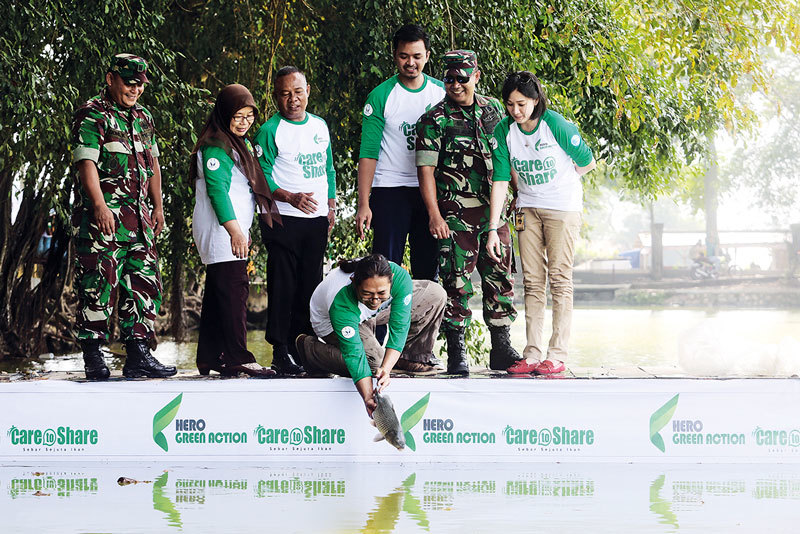
As their effort to support education quality in Indonesia, the “HERO Peduli” programme takes formal and informal approaches where all the stakeholders can become actively involved in the projects. Among these projects is an initiative called “One Store One School,” an established programme aiming to offer assistance to at least one school located near a HERO store. The assistance provided to schools include education facilities support, infrastructure improvements and student scholarships. Between 2011 and December 2016, a total number of 377 schools received assistance through the “One Store One School” project.
To support the government policy to reduce plastic waste in Indonesia, HERO Group also initiated a programme to educate and encourage customers through a campaign called “Bring Your Own Shopping Bag”. Part of this programme is the distribution of recycled bags among customers as well as talk shows about 3R (Reduce, Reuse & Recycle) and regular shopping challenges in order to create more awareness on how to shop with minimum waste. All different environmental awareness and preservation activities conducted by HERO Group are summarized in a programme called “HERO Green Action”.
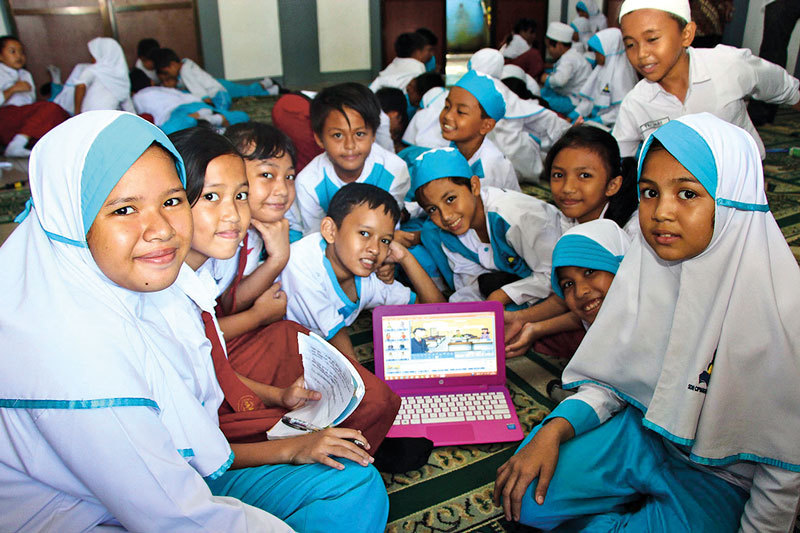
Health is inevitably one important aspect when it comes to the development of the nation. This is embodied by HERO Group through various activities, including inviting the community to live a healthy lifestyle through regular blood donations, a zumba carnival called HEROBIC, healthy food cooking demonstrations, free dental check ups for students of the schools in the neighborhood and many more.
HERO Group gives an opportunity to Small Medium Size Enterprises (SME) to become partners in the group’s operational activities in order to foster economic growth in Indonesia. Additionally, HERO Group in collaboration with universities such as Padjajaran University, Gajah Mada University and Brawijaya University provides knowledge about agriculture education, development of farm products, retail product packaging standards and the distribution process as a form of support for local farmers. Through this sustainable support, the local farmers are expected to increase the quality and quantity of their products. Furthermore, they automatically become local suppliers for HERO Group stores.
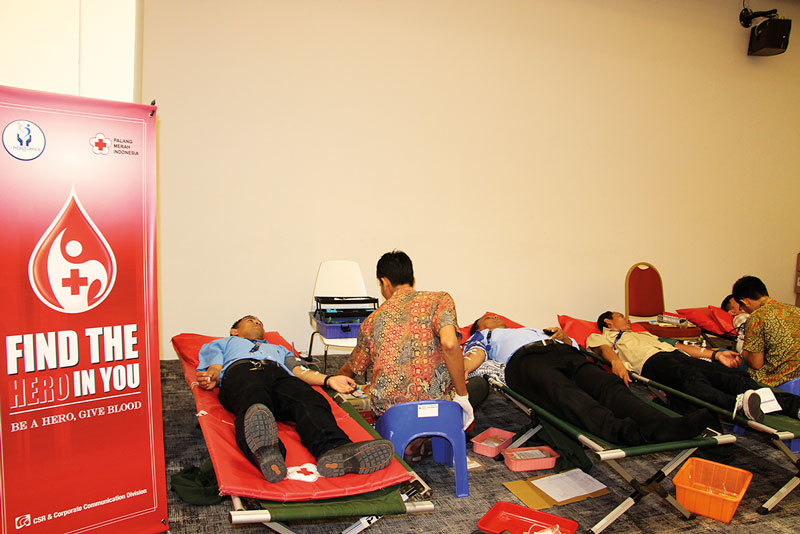
HERO Group believes that the only viable path to accomplish a sustainable business is to show concern for people and the planet that is as equally important as profit.
BLUE BIRD GROUP
Growing Starts Within The Organization
To many citizens of Jakarta and many other big cities in Indonesia, Blue Bird Group isn’t just a taxi company, but a part of their lifestyle. If New York is known for yellow taxis and London for its black cabs, then Jakarta has Blue Bird: the armada of blue taxis adorn the busy streets of the city at all times during the day. Since the company’s humble beginning in 1972, Blue Bird Group has stayed true to its commitment to keep customers satisfied by providing secure and comfortable transportation services nationwide.
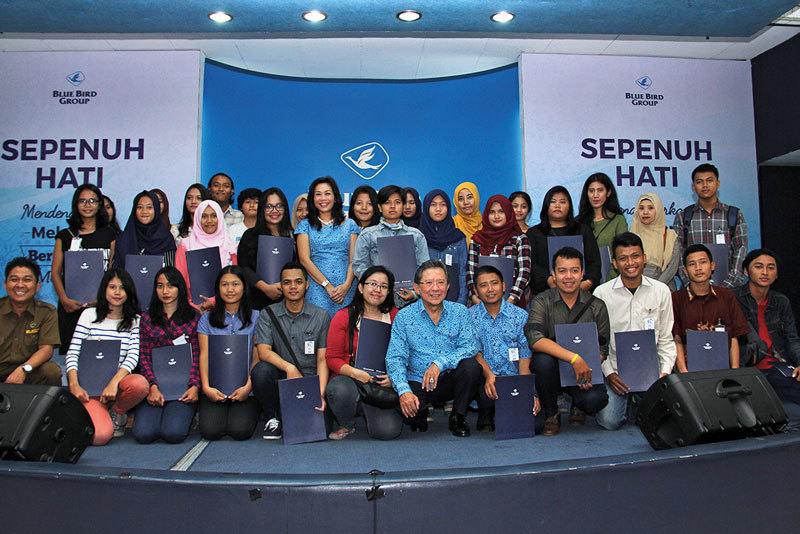
Serving millions of passengers every month, Blue Bird Group has spread its wings to include many services. From taxis, containers and heavy equipment to logistics, Blue Bird Group is a holding group that has gained the status as the foremost and most reliable land transportation provider in Indonesia. Giving back to the community, especially to the group’s professional and trusted drivers, was always regarded as one of the keys to its success. Hence, a Corporate Social Responsibility (CSR) programme named“Blue Bird Care” was established, focusing on education and social welfare.

Every year, more than 1,000 children of the Blue Bird Group’s drivers are given a scholarship ranging from high school, diploma until under-graduate degree. Among the scholarship recipients are children of drivers who passed away while still working, like the children of the victims of the bomb blast at the JW Marriott nine years ago, and children with disabilities. In addition, internship opportunities are also provided to those who are in the post-study stage.
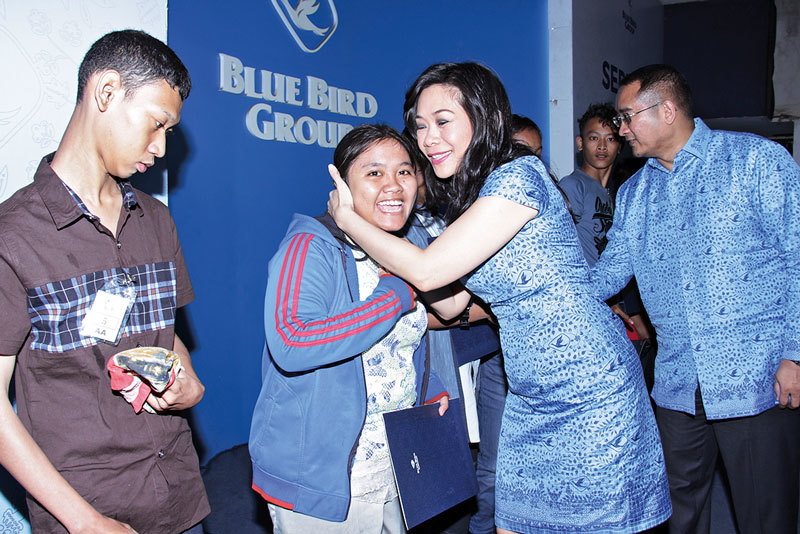
As a contribution to increase the social welfare of the country, Blue Bird Group recently established the Women Empowerment Project, an initiative for more than 30,000 wives of the company’s employees and drivers. Through this programme, the company provides free sewing courses and baking classes for the drivers’ wives, so that they are equipped with skills to enable them to set up small home businesses. Another of Blue Bird Care’s focuses in the CSR field is environmental awareness, and so far, the group has been involved in water recycling as well as oil and waste-processing projects.
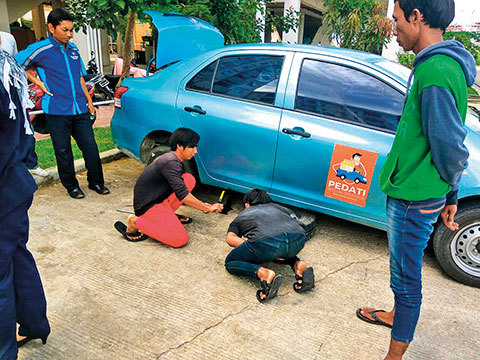
It is a well-known fact that employee development programmes offer an invaluable contribution to the company. By giving your employees opportunities to develop new skills, grow their knowledge and lead new efforts, you’re promoting natural learning and growth within the organization. For the Blue Bird Group, this is not only an empty platitude. Instead, it has shown that corporate responsibility can begin by improving the lives of the employees and their family members.


